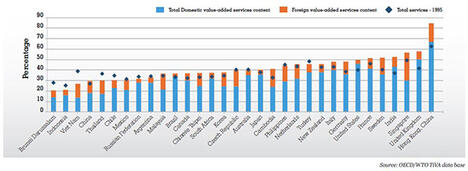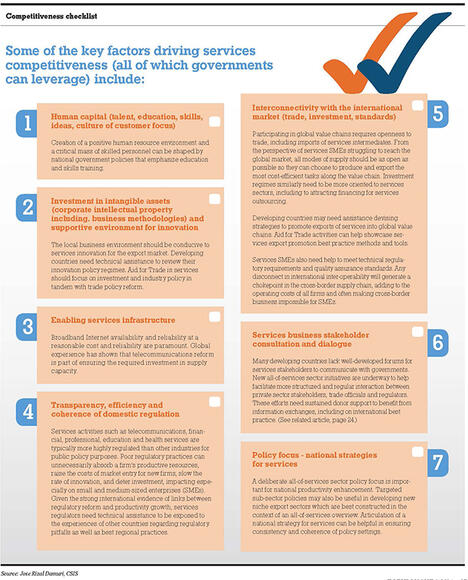Entering services sector value chains: How Aid for Trade can help
The key role of services industries in enabling the development of value chains in goods is now well understood. Services industries are also fragmenting into global value chains themselves. Business services intermediates have become the fastest growing component of world trade, reflecting the growth of services outsourcing and the emergence of global services value chains.
For many developing countries, including landlocked and small island economies, participation in outsourcing activities in services value chains offers access to global markets as remoteness matters less for services trade, where no physical goods need to be transported. Services export represents an opportunity for development, a fact that Aid for Trade actors must recognize.
Talent, languages, customer focus and telecommunications links have become more relevant determinants of competitiveness than access to coastline, proximity to markets or frequency of maritime transport links.
Developing countries’ share in world services exports has more than trebled over the last two decades to 33% in 2012. There is increasing sophistication from the traditional transport and tourism sectors to other non-traditional commercial services. Services off-shoring activities accounted in 2010 for US$ 252 billion in global export revenues and employed 4 million people.
However, too few developing countries are taking advantage of these new opportunities to specialize in the export of niche services tasks. While the services value-added content of global exports now averages 45%, most developing countries fall below this level. Furthermore, the services content of their exports has experienced a decline, rather than an increase, in several cases over the last 15 years (see figure below).
Services content embodied in gross exports, 2009
Click on the image to view the full size
There is therefore much scope to boost the participation of developing countries, including small island and landlocked economies, in the services aspects of global value chain activity.
To that end, services must be given higher priority in Aid for Trade initiatives. Specifically, those efforts need to be directed towards identifying and leveraging the factors that impact on competitiveness, both at all-of-services level and in individual prospective services growth sectors.








